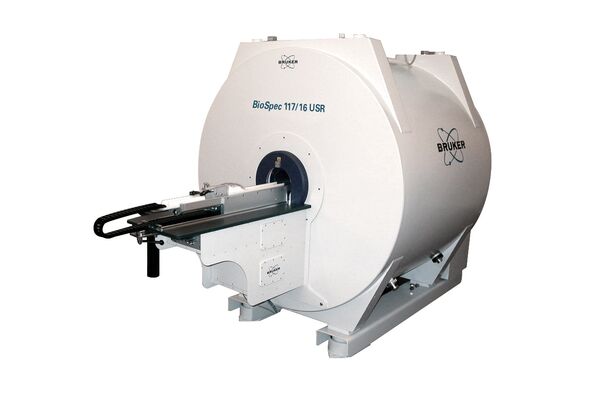
Animal magnetic resonance imaging (MRI) research at the University of North Carolina (UNC) at Chapel Hill has been supported by a single Bruker Biospec 9.4T animal MRI scanner installed in 2006. This scanner has been widely utilized by 96 investigators in the Research Triangle area of the North Carolina. This application requests funds to purchase and install the second Bruker Biospec 9.4T small animal MRI. Our primary Justification of Need is that a single animal MRI scanner can no longer support the growing numbers of MR-dependent NIH-funded projects. The existing 9.4T system had an averaged annual usage of 1,833 hours during 2009-2013, and this number increased to 3,145 hours annually during 2014-2018. With the major system maintenance downtime excluded, our averaged accessible user time (AUT, with 100% being equivalent to 40 hours per week) was 87.8% annually during 2009-2013, and 187.2% annually during 2014- 2018, representing a 213% increase. While it is unrealistic to project another ~200% increase over the next 5 years, the demand of animal MRI scanner time at UNC indeed increases continually, as evidenced by the number of new NIH awards in 2018. The current proposal has identified 24 Major Users with 26 R01-level Research Projects that has an animal MRI component, along with other extramural research awards. Collectively 88% of these awards are granted by NIH. The budgeted MRI studies in these projects, if all are performed as planned, will generate 254.7% AUT per year – well above our existing 9.4T usage over the past 5 years and we still anticipate additional usage from various minor or new users. Several external users from prestigious research institutions have chosen to execute their animal MRI projects at UNC due to the unique expertise in our facility. This indicates that the impact of the proposed new instrumentation is not limited at UNC, but has extended benefit to researchers outside our geographical location. The proposed new Bruker 9.4T system will be managed by a team of researchers with solid Technical Expertise and several years of track record on operating the existing Bruker 9.4T system for research service since 2006. The Administration plan will build on our prior success and governed by UNC Core Facility Advisory Committee as well as five renowned MRI researchers in the field. UNC and North Carolina Biotechnology Center have together provided substantial Institutional Commitments, totaling $900,000 matching funds toward this application as well as facility space in the new Translational Research Building to house the proposed equipment. Our proposal also includes a 4-channel rat CryoProbe, which can boost MR imaging signal-to- noise ratio by 2.5x. This gain is equivalent to doubling or tripling the magnetic field strength and will offer a major leap of our MRI resolution and sensitivity. If this proposal were to be funded, UNC will be the 1st academic institution in the United States to house the 4-channel rat CryoProbe. This marks our application absolutely unique and innovative, and will put us at the forefront of preclinical MRI research.
